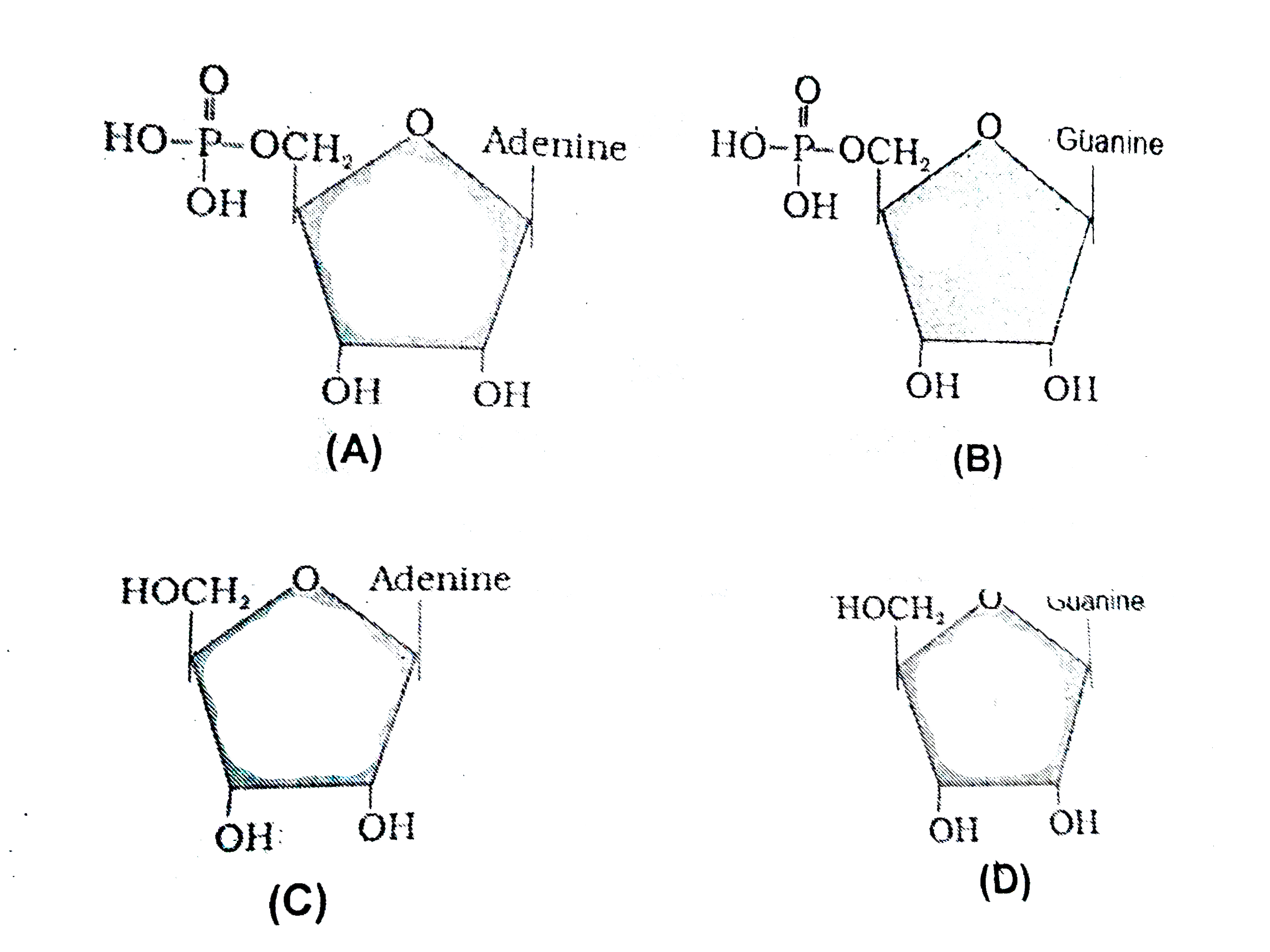A nucleoside differs from a nucleotide. It lacks the
base
suger
phophate group
hydroxyl group
The correct Answer is:C
Step-by-Step Solution:
1. Understanding Nucleosides and Nucleotides:
- A nucleoside consists of two components: a nitrogenous base and a pentose sugar (which can be ribose or deoxyribose).
- A nucleotide, on the other hand, is composed of three components: a nitrogenous base, a pentose sugar, and a phosphate group.
2. Identifying the Key Difference:
- The primary difference between a nucleoside and a nucleotide is the presence of the phosphate group.
- In a nucleoside, only the nitrogenous base and the pentose sugar are present, while in a nucleotide, the phosphate group is also included.
3. Conclusion:
- Therefore, a nucleoside differs from a nucleotide in that it lacks the phosphate group.
Final Answer:
A nucleoside differs from a nucleotide because it lacks the phosphate group.
---
- A nucleoside consists of two components: a nitrogenous base and a pentose sugar (which can be ribose or deoxyribose).
- A nucleotide, on the other hand, is composed of three components: a nitrogenous base, a pentose sugar, and a phosphate group.
- The primary difference between a nucleoside and a nucleotide is the presence of the phosphate group.
- In a nucleoside, only the nitrogenous base and the pentose sugar are present, while in a nucleotide, the phosphate group is also included.
- Therefore, a nucleoside differs from a nucleotide in that it lacks the phosphate group.
A nucleoside differs from a nucleotide because it lacks the phosphate group.
Topper's Solved these Questions
- MOLECULAR BASIS INHERITANCE BOOK - NCERT EXEMPLAR ENGLISHCHAPTER - MOLECULAR BASIS INHERITANCE EXERCISE - Very Short Answer Type Questions
11 Videos
- MOLECULAR BASIS INHERITANCE BOOK - NCERT EXEMPLAR ENGLISHCHAPTER - MOLECULAR BASIS INHERITANCE EXERCISE - Short Type Answer Questions
23 Videos
- MICROBES IN HUMAN WELFARE BOOK - NCERT EXEMPLAR ENGLISHCHAPTER - MICROBES IN HUMAN WELFARE EXERCISE - Long Answer Type Questions
6 Videos
- ORGANISMS AND POPULATIONSBOOK - NCERT EXEMPLAR ENGLISHCHAPTER - ORGANISMS AND POPULATIONSEXERCISE - Long Answer Type Questions
12 Videos
Similar Questions
Knowledge Check
Nucleotides
Acontain a sugar, a nitrogen-containing base, and a phosphate moleculeBare the monomers for fats and polysaccharidesCjoin together by covalent bonding between the basesDall of the above
A nucleoside is formed of
View SolutionA nucleotide is formed of
View SolutionNucleotides is
View SolutionWhich of these statements about protein synthesis are NOT correct ?
I. During transcription, mRNA synthesized from DNA nucleotides to have the same sequence of nucleotides as the DNA strand on which it was made.
II. During transcription , tRNA is synthesized from RNA nucleotides and carries codons that are complementary to the sequence of nucleotides on the DNA strand on which it was made.
III. During translation, mRNA is synthesized from RNA nucleotides to have the complementary sequence of nucleotides to that. Of the DNA strand on which it was made .
IV. During translation ribosomes move on mRNA from '5' and '3' one codon at a time .This is called translocation
View SolutionWhich two are nucleotides

View SolutionWhich one is a nucleotide ?
View SolutionWhat is a nucleoside?
View Solution
